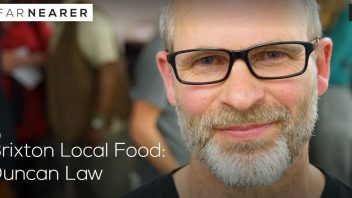This October, the REconomy Project was invited by our friends at Renew Wales to their annual conference in Wrexham, which this year focused on the power and strength of communities and the drive to create better places for future generations. 
It was a really brilliant day of talks, workshops, plenty of networking and more talking. Laura Outhart, REconomy Project Coordinator shares her highlights from the day.
An amazing act – it’s unusual to find government policy setting your pulse racing, but Dr. Eurgain Powell’s presentation on Welsh Government’s (2015) Well-being of Future Generations Act did just that. This ground-breaking legislation means that, from last year, all public bodies in Wales must work to improve the long-term economic, social, environmental and cultural well-being of people in Wales. The Act identifies seven well-being goals, introduces new ways of working to embed sustainable development in working practice and includes the appointment of an independent Well-being of Future Generations Commissioner to make sure it all happens. It’s very early days and there was much discussion about how significant culture change is needed for policy to come into practice, but it definitely feels like a brilliant and inspiring starting point. More information in this short video
Knowledge Network – Through our work we’ve found that sharing knowledge, developing relationships and building networks are crucial factors for creating positive change, and the presentation from our hosts Renew Wales was a masterclass on how to do it. Set up by Development Trusts Association Wales in 2006, the Renew Wales programme sees peer-mentors who have delivered projects in their community give paid support to other groups and initiatives that are just starting out. As well as helping 250 groups develop practical action plans to help move their projects forward, Renew Wales has also created a pan-Wales network of active, knowledgeable and motivated groups and individuals that includes a whopping 30 local co-ordinators, 60 peer mentors and an active network of 400 communities groups all working towards a better Wales.
Big meets Little – Renew Wales is funded by Sustainable Steps Programme delivered through the Big Fund and funded by money from dormant bank accounts. John Rose director of Big Lottery Wales opened the conference and spoke enthusiastically about their support for Renew Wales and how the work was helping to empower communities. Later in the day, when discussions turned to the Welsh Brexit vote, the perceived failure of EU money to reach local communities and make a difference to people’s lives came up as a major factor. It struck me that much could be learned from the way the Big Fund, Renew Wales and the network of community groups had worked together to get skills and investment to tiny groups in often very hard to reach places. In post-Brexit Britain this is exactly the type of programme our communities need.
Community finance – The event was also an opportunity to check in with Robert Owens Community Bank who featured in our 2013 20 Inspiring Enterprises Report. Since the report the organisation has grown rapidly with a seven-fold increase in staff and an expected trebling of their annual turnover to an expected £1.8m in 2016. We also learnt more about some of their great projects. These include an award-winning £3m (!) revolving loan fund that provides zero-interest micro-loans to encourage take up of renewables in Powys. This summer ROCB have also worked with Swansea City Council to finance of a £400k ‘local grid’ system on ten schools, with a new community-owned company selling electricity back to the schools, saving them money and helping teach kids about renewables. In the dark days of 2016 hearing about a successful community bank whose sole purpose is to reinvest in the community felt exciting, if not slightly surreal. We definitely need more of these!
Same, same but different – our workshops were led by Duncan Law from Transition Town Brixton and focused on our learnings from the REconomy pilot projects and how this compared to the experiences of delegates delivering projects in Wales. There were many common themes around developing teams and initiating projects, but also some significant differences identified particularly around the role and attitude of Local Authorities to community action. In Wales there seems to be a sense that Local Authorities still have money to invest but, in some areas at least, we heard community groups were struggling to engage meaningfully with local authorities. Whereas in England there seems to be a widespread understanding that the money for communities has gone, but equally an acceptance that community groups have a key role to play in delivering services. Obviously it is very a complicated picture, and time limited us from discussing this in more depth, but the sense was that these changes have occurred as a result of a different funding context and the impact of the Localism Bill. This is an area we are keen to explore more in the future.
You can read more about the day on the Big Lottery Fund blog.







Connect